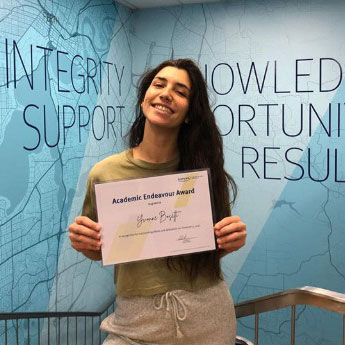A day in the life of an MBA student
Are you thinking of studying an MBA in Australia? You may be wondering how many hours you need to dedicate to classes, self-study and group projects while balancing work, social activities and getting enough rest.
In this blog, one of our current students and recipient of our High Achievers award, Sugar Suarez, will share about her typical day as an MBA student, how she balances her responsibilities and give insights on the class environment, networking opportunities, career development and maintaining personal wellbeing.
Sugar Suarez
Philippines
MBA (specialisation: Data-Driven Leadership)
People Operations Coordinator

GENERAL DAILY ROUTINE
1. Please take us through a typical day in your life as an MBA student.
My day starts when Alexa wakes me up with a positive quote and an interesting historical fact. It sets the tone for the morning with a mix of motivation and curiosity. I take a moment for prayer to ground myself before getting out of bed.
On class days, I have back-to-back subjects, meaning I have a full day of lectures, workshops, and discussions. Whenever there’s a break, I catch up on coursework, review materials or grab coffee or lunch with my peers. These moments help me reset before going into the next session.
After a full day on campus, I often go to the beach to unwind before heading home. I live by the coast and spending a few minutes on the boardwalk helps me clear my mind after a day of long lectures.
I have a part-time job, so I set aside time for assignments and independent study either before or after work, depending on deadlines. It helps me manage both priorities without feeling overwhelmed. Each day presents new challenges, but maintaining structure and taking time to recharge helps me stay on top of things.
2. How much time do you spend in class on a daily or weekly basis?
I attend around 6–8 hours of lectures and workshops per week, depending on the trimester. These sessions can sometimes occur across two days, which gives me more flexibility to manage my work schedule and personal study time throughout the rest of the week.
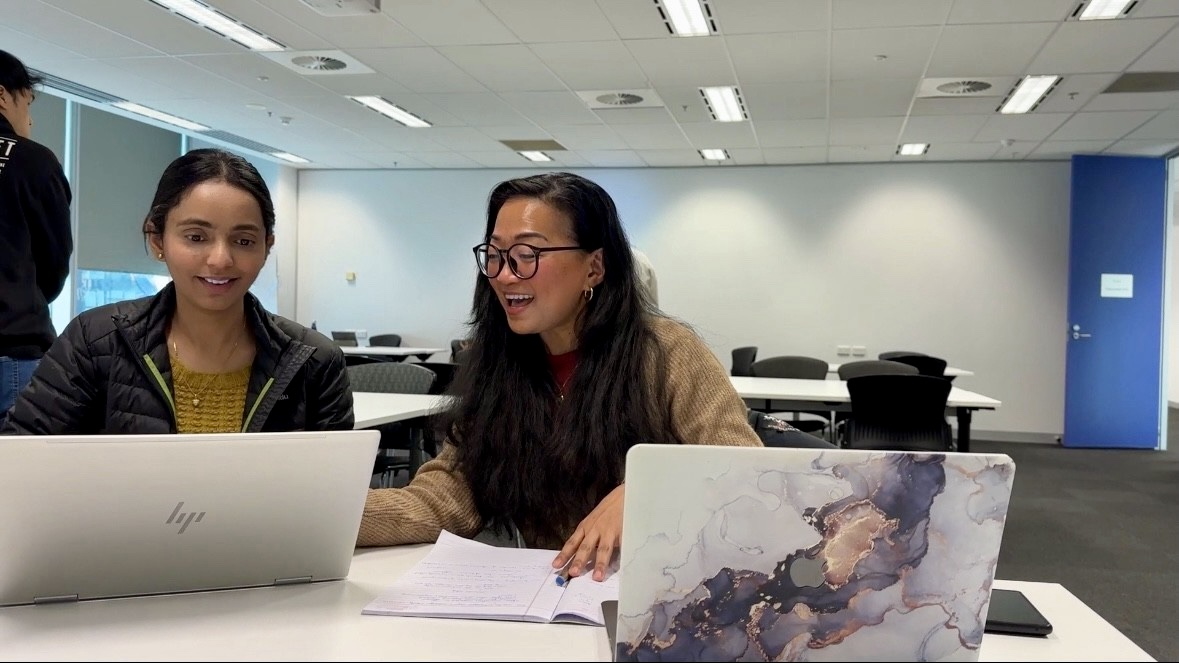
3. How much time do you study outside of class?
I dedicate around 12–15 hours weekly to independent study. This includes reviewing lecture content, completing readings and working on assignments. I break this down into focused sessions on weekends and after work. My study hours often increase during assessment periods, but I manage my workload and avoid burnout by pacing tasks.
4. How do you balance all your responsibilities?
Time management is everything. I use a schedule and prioritise tasks based on urgency and importance. The key is knowing what needs your focus first rather than trying to get everything done at the same time.
There are days when I feel overwhelmed, but I have learned that balance doesn’t mean equal time for everything but rather knowing when to push forward and when to pause. If I have back-to-back deadlines, I adjust my social time. If I need to recharge, I allow myself time to rest.
5. What other activities do you have during the rest of the week?
During my free time, I spend time with family and close friends, or I stay home to read and watch true crime documentaries. I like to explore the city, discover hidden cafes, go on bike rides and experience Melbourne’s cultural scene. This is my way of balancing solitude with meaningful social engagements.
Rahul, a current KBS student, shares his day as an MBA student in Adelaide.
ACADEMIC LIFE
1. What is your approach to managing assignments, assessments and group projects?
For my assignments and assessments, I break everything down into smaller, manageable steps rather than seeing them as one big task. I start working on my assignments early and read through the requirements for a High Distinction mark. With group projects, I believe in leveraging each team member’s strength as it makes collaboration more efficient and ensures everyone is contributing in ways that align with their skills.
2. How do you deal with the pressure of multiple deadlines?
Deadlines are inevitable, but stress doesn’t have to be. I focus on the biggest tasks first and leave room for adjustments. Some assessments require deep focus, while others can be approached in stages. The key is momentum with small steps completed consistently over time.
3. Does your MBA program foster a collaborative learning environment?
Yes, the MBA program thrives on engagement and diverse perspectives. Discussions are rich, and I actively participate. The collaborative environment means we often learn as much from each other as from our lecturers.
4. What is your favourite part of the MBA course?
My favourite part is the diversity of thought and learning from peers. Each person comes with a different industry background and discussions often challenge my perspective in ways I wouldn’t have considered on my own.
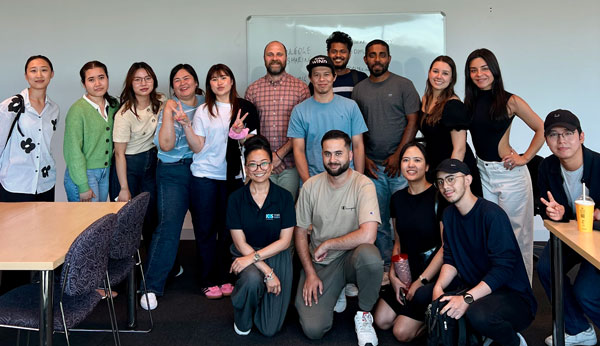
5. What is the most challenging part of the MBA course?
The MBA course covers multiple disciplines, and it’s easy to feel stretched. Your career goals will help you stay focused on what information is most valuable.
6. What are the key skills you develop while studying for an MBA?
The MBA cultivates more than just technical skills, it sharpens your ability to think strategically, communicate with intention, analyse complex data and collaborate across cultures. Most importantly, it expands your self-awareness about how you lead, how you respond under pressure and how you connect with others.
"My favourite part [of the MBA] is the diversity of thought and learning from peers. Each individual comes with a different industry background and discussions often challenge my perspective in ways I wouldn’t have considered on my own".
NETWORKING
1. How important is networking in your MBA program? How do you go about building relationships with peers, alumni and industry professionals?
Networking is one of the most valuable aspects of the MBA program. KBS is actively engaged with the Study Melbourne community, and we get access to events tailored for international students. I have attended events such as ‘Elevate your career’ and ‘Holiday hub’ where I was able to meet industry leaders and connect with other students who share a similar journey to me. These events helped me build confidence, learn about different cultures and form relationships.
One event led to a meeting with an HR professional who shared with me practical insights on how to position my People and Culture experience within the Australian market while keeping an international perspective in mind. Knowledge is essential but it is relationships that open doors for career opportunities, industry insights and personal growth.
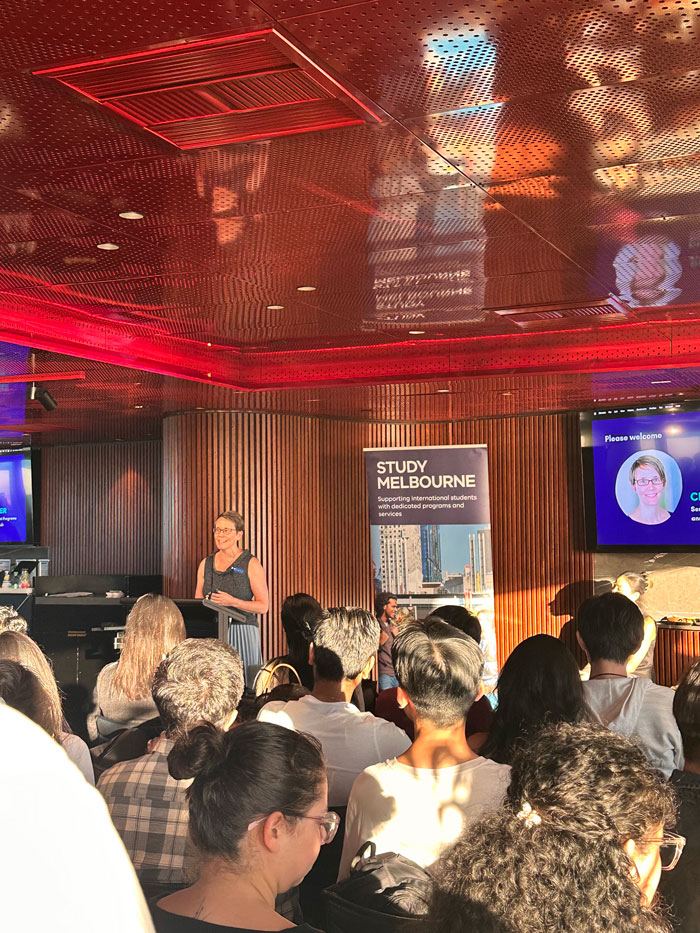
2. Are you part of any clubs or societies? If so, which ones?
Yes, I am a student mentor and a student ambassador at KBS. I am also part of the Carrum Beach Patrol, which allows me to contribute to environmental efforts while being active outdoors.
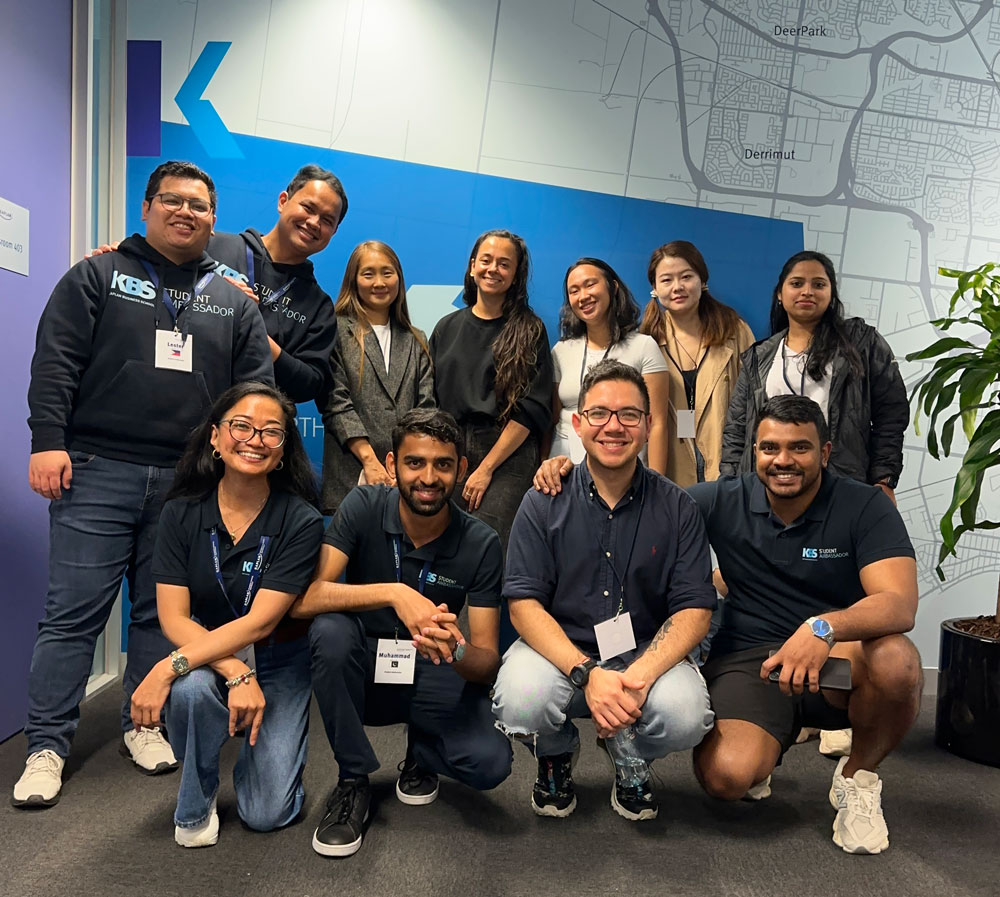
CAREER DEVELOPMENT
1. Are there any resources or support systems in your school that help you find job opportunities?
Yes, KBS offers excellent support through their Career Services team. They help with everything from resume reviews and job search strategies to mock interviews and employer networking events.
We also have Student Ambassador-led initiatives such as KBS Talk, which create spaces for students to connect and build confidence in networking. These platforms are especially valuable for international students navigating a new job market.
2. How do you balance your job search or career development with the demands of the MBA program?
Career development is integrated into my life as a student. I regularly reflect on where and how I want to grow and then align my actions accordingly. Sometimes, it’s updating my resume, contacting a mentor or joining a workshop. I treat it as a long-term habit, not a one-time goal. That mindset helps reduce pressure and allows for steady, meaningful progress even amidst busy academic weeks.
WELLBEING
1. How do you manage your mental and physical health while juggling a busy MBA schedule?
I prioritise rest and mindfulness. I go for walks by the beach, disconnect from screens when I can and regularly reflect on how I’m feeling. I’ve learned to listen to my body to avoid burnout.
I relax and recharge by reading, journaling, listening to music and going on short solo city adventures. I love finding quiet cafés where I can just observe life or jot down thoughts. I also regularly call home as hearing familiar voices helps ground me.
2. What hobbies and interests do you have?
I enjoy writing, exploring hidden laneways and making mini travel reels. I’m also interested in leadership psychology and read a lot on emotional intelligence and workplace culture.
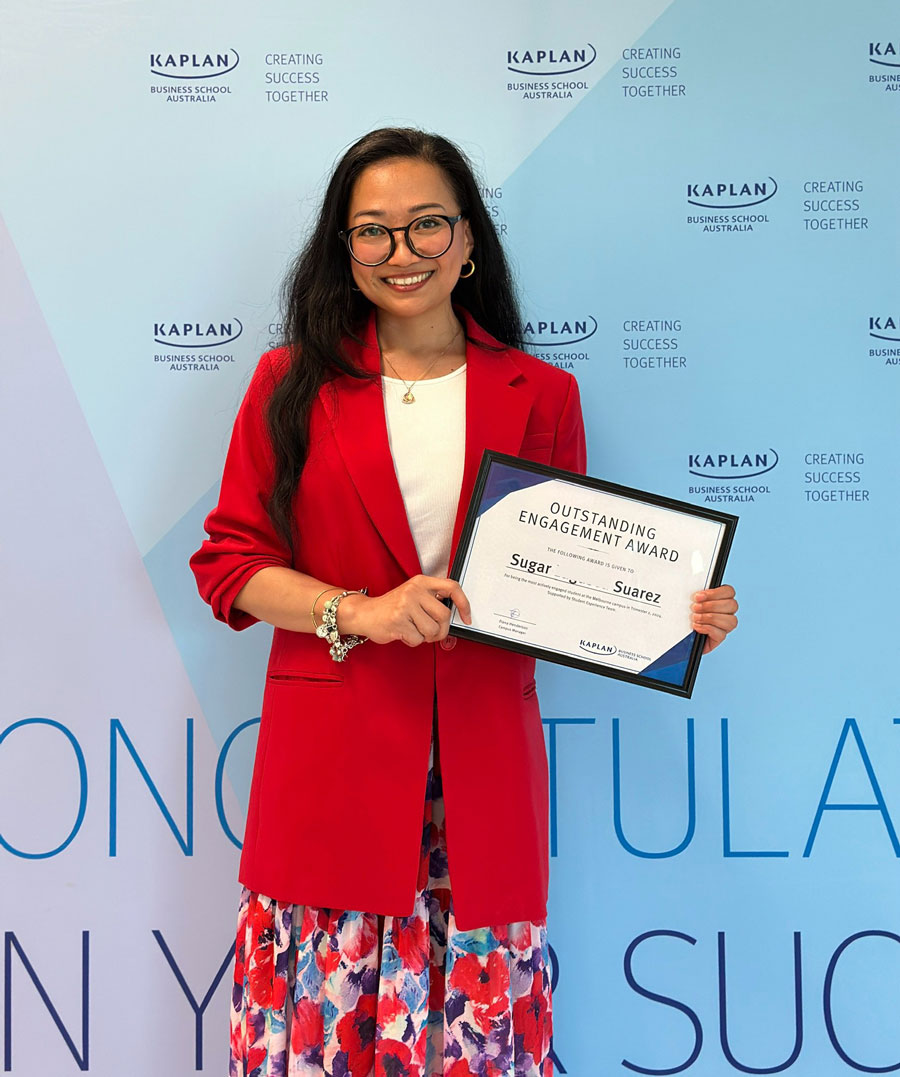
Develop your leadership skills and invest in your career. Our MBA is the most popular MBA course in Australia for international students* and will provide you with the expertise and practical skills to succeed in the world of business. Read our Ultimate Guide to doing an MBA in Australia to discover how an MBA can help advance your career.
*MBA News 2022



